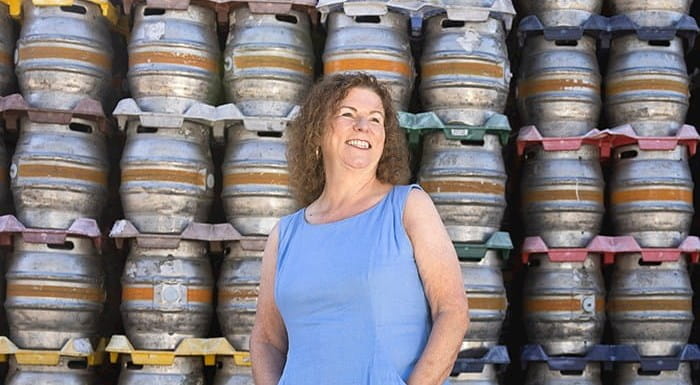As businesses square up to the complex challenges around sustainability, the CFO can play a leading role in bringing about change. This assertion is at the heart of the recently launched toolkit ‘what does the CFO’s changing role mean for you?’.
Created by the Board Intelligence Think Tank, in partnership with ICAEW, Accounting for Sustainability and executive search firm Odgers Berndtson, the guide identifies five levers that CFOs can use to support a fairer future.
Speaking at the launch of the toolkit, Julie Brown, CFO of biopharma giant GSK, gave her insights about what she had learned about values during her career. As well as serving as CFO at AstraZeneca, Smith & Nephew and COO at Burberry, Brown has sat on the board at Roche.
“If you’ve got that combination of what you believe in with what the purpose of the company, it's magical and you will go the extra mile,” Brown told attendees.
Sense of purpose
GSK aims to reach 2.5 billion people with its medicines and vaccines, so it puts patients and people at the heart of everything it does – particularly when looking at the future. For Brown, that makes the whole organisation extremely forward-thinking.
That sense of purpose fuels one of GSK’s biggest segments: its HIV business. Brown revealed the staggering figure that globally, 46% of all new HIV infections were among women and girls in 2022.
“The mission for our HIV business is to ‘leave no person with HIV behind’, so we have voluntary licensing in place to support low-cost supply from generic manufacturers for low-income countries including many in Africa, because there’s a massive unmet need. And that’s what’s meaningful about what we do.”
GSK’s mission focus also steers how the company invests in itself. “Funding R&D is one of the most important things you can do,” Brown stressed. “We shape our P&L accordingly – so the R&D-to-sales percentage in GSK is rising as we increase funding in R&D.”
Brown noted that R&D is playing a key role in the brand’s efforts to protect the environment. For example, GSK is looking at replacing the propellant in one of its inhaler medicines, which is responsible for a significant proportion of the company’s carbon emissions. The project is set to take years to complete, but as Brown said, “If you do the right thing, but you drive efficiencies in P&L to offset it, that’s where you get a positive synergy.”
Busting stereotypes
Crucially, the new toolkit is based on the real-life experiences of 150 active CFOs. Participants in the background research agree with Brown’s point that the CFO should be in the vanguard of change.
“It’s within the CFO’s gift to be deliberately non-hierarchical,” Adnams CFO Jenny Hanlon said. “CFOs are often seen as traditionalists, with the stereotype being that they are reserved, proper and structured – but you don’t have to be.”
Hanlon noted: “I relish not being the CFO you would expect to meet. I make a point of talking to anybody, of talking to people about emotional things that aren’t work-related. Giving that balance and openness is incredibly important.”
In Hanlon’s view, the CFO is now more forward-looking. “Traditionally, the role was much more about churning out the numbers and presenting financial accounts,” she said. “Today, you have to explain what the business has achieved with those numbers and help the business understand and see what it can do going forward.”
Holistic measure
Camelot Co-Chief Executive Claire Swindell – who was previously CFO at retail software brand dunnhumby – said that most CFOs will agree that the role is focused around value creation. However, for Swindell, that now goes beyond traditional gauges of value, such as cash flow or profit.
“It’s value across a balanced scorecard,” she said, “which also includes the broader impacts of our business on society, on the planet, and on our communities around us. That means looking at value differently.”
She explained: “If the business wants to invest in something that isn’t necessarily going to directly drive top-line revenue or profit but is the right thing to do, I look at that as an investment opportunity and still make sure I’m asking if it’s the best value choice to support that broader value agenda.”
For PZ Cussons CFO Sarah Pollard, one of the biggest challenges of the present time is that if you ask 10 people what’s most important in sustainability, you will get 25 different answers. However, she noted, knowing the business’s destination enables the CFO to be clearer on which KPIs to observe.
“We’ve set becoming a B Corp as a bold ambition for the business,” Pollard said, “because that’s very deliberately a holistic measure of our environmental sustainability, societal impact and employee well-being — but there are other science-based targets we’re prioritising too.”
In financial performance, she said, even when they are not necessarily easy to achieve, it’s easy to define which KPIs represent success. “In any sustainability agenda,” she pointed out, “that’s slightly less clear.” However, she added: “PZ Cussons is up for the challenge!”
Pollard added that she also sits on her company’s environmental, social and governance board committee, where she’s as opinionated on sustainability topics as she is on financial performance.
“Although that’s a personal choice,” she said, “I think that every director can and should contribute beyond their specific functional specialism to make an impact on other areas that they are passionate about or interested in.”
How CFOs create a fairer future
Read more interviews on how the CFO role is changing and access our toolkit to support CFOs navigate the new demands they're facing.




